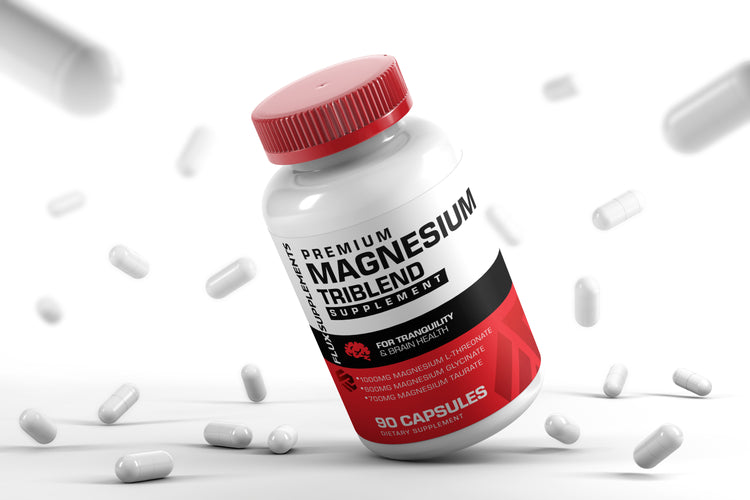Anxiety is a common mental health condition that affects millions of people worldwide. While various treatment options exist, some individuals seek natural remedies to alleviate their anxiety symptoms. Magnesium, an essential mineral with numerous physiological functions, has been suggested as a potential aid in managing anxiety. In this blog post, we will delve into the topic and explore the potential benefits of magnesium in relieving anxiety.
If you or someone you know may benefit from magnesium supplementation, check out the best Magnesium Triblend supplement on the market!
I. Understanding Anxiety:
- Definition of Anxiety: Anxiety is a psychological and physiological response to stress characterized by excessive worry, fear, and apprehension.
- Prevalence of Anxiety: Anxiety disorders are prevalent worldwide, affecting a significant portion of the population.
- Impact of Anxiety: Chronic anxiety can interfere with daily functioning, reduce quality of life, and contribute to various health issues.
II. The Role of Magnesium in Anxiety:
- Magnesium's Impact on the Nervous System:
- Magnesium plays a crucial role in regulating neurotransmitters and the overall function of the nervous system.
- It acts as a natural relaxant, supporting a calm and balanced state.
- Magnesium & the Stress Response:
- Chronic stress and anxiety can deplete magnesium levels in the body.
- Magnesium modulates the hypothalamic-pituitary-adrenal (HPA) axis, which regulates the stress response.
III. Research on Magnesium & Anxiety:
- Studies Linking Magnesium to Anxiety Relief:
- Research suggests a potential association between low magnesium levels and increased anxiety symptoms.
- Some studies have shown that magnesium supplementation may help reduce anxiety levels.
- Mechanisms Behind Magnesium's Potential Anti-Anxiety Effects:
- Magnesium enhances the production and release of gamma-aminobutyric acid (GABA), a neurotransmitter that promotes relaxation and reduces anxiety.
- It may also modulate the activity of N-methyl-D-aspartate (NMDA) receptors, which play a role in anxiety regulation.
IV. Additional Benefits of Magnesium:
- Sleep Improvement:
- Restful sleep is vital for managing anxiety, and magnesium can promote relaxation and support better sleep quality.
- Muscle Relaxation:
- Magnesium's muscle-relaxing properties can alleviate physical tension and discomfort associated with anxiety.
- Mood Stabilization:
- Magnesium's involvement in neurotransmitter regulation may contribute to stabilizing mood and reducing anxiety-related symptoms.
V. How to Incorporate Magnesium for Anxiety Relief:
- Dietary Sources of Magnesium:
- Include magnesium-rich foods in your diet.
- Prioritize whole, unprocessed foods to maximize magnesium intake.
- Magnesium Triblend Supplementation:
- Consult with a healthcare professional to determine the appropriate dosage and form of magnesium supplement.
- Common forms of magnesium supplements include magnesium taurate, magnesium glycinate, and magnesium L-threonate.
- Lifestyle Modifications:
- Adopt stress-management techniques like mindfulness, meditation, deep breathing exercises, and regular physical activity.
- Limit caffeine and alcohol consumption, as they can disrupt magnesium levels by causing a magnesium deficiency.
- Seek Professional Guidance:
- If you're experiencing severe anxiety symptoms, consult a healthcare professional or mental health provider for a comprehensive assessment and personalized treatment plan.
While magnesium is not a cure-all for anxiety, it shows a ton of promise as a complementary approach to managing anxiety symptoms. Its involvement in the nervous system, stress response, and neurotransmitter regulation suggests a role in anxiety relief. Considering magnesium supplementation with our Magnesium Triblend and adopting a holistic approach to managing anxiety, you can take proactive steps towards finding balance and support for your mental well-being. Remember to consult with a healthcare professional for personalized advice and guidance on incorporating magnesium into your anxiety management plan.
If you think you may be low in magnesium, take our free and short Magnesium Deficiency Quiz to find out!
Stay Healthy,
Flux Supplements


